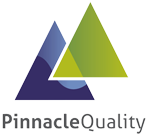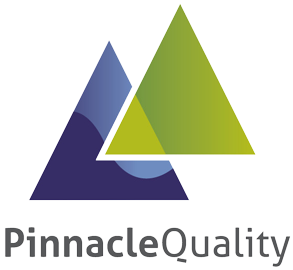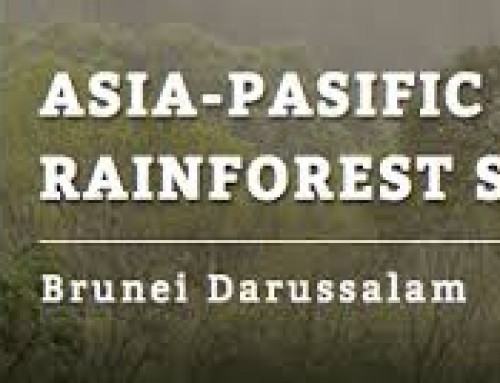Pinnacle Quality helps companies achieve certification, principally in the sustainability area. However our capability statement also includes religious certification. Why? Simply put, this is often best addressed by integrating religious requirements into a quality systems approach.
Many years ago, I managed the Halal certification contracts out of New Zealand for what was then the New Zealand Meat Producers Board and later managed the Middle East markets for the Board. I thought I had a clear understanding of the Halal systems and how important they were in a number of markets. It appears, however, that since that time things have changed — notably from a marketing point of view. I decided, therefore, that I needed to speak to an expert to get an update.
Hj Salahudin Joudi is a director of Al-Tayibat Global Solutions Sdn Bhd based in Brunei. He is a food scientist and an expert in the growing concept of halal marketing (as opposed to Halal certification). I spoke to him recently in Brunei to update my understanding of this growing trend.
Kevin O’Grady, Pinnacle Quality: I always assumed that halal referred to what Muslims are permitted to eat and what is prohibited, the types of meat that are allowed and how meat must be slaughtered to be halal. I’m also aware that alcohol is forbidden.
Hj Salahudin Joudi, Al-Tayibat Global Solutions: There are strict rules set out for Muslims on what is halal (permitted) and haram (forbidden). But there is another concept called tayyib (pure/ethical/wholesome/good).
Nearly everywhere that we are told in the Qur’an to eat only things that are Halal, but tayyib is explicitly mentioned as a necessary quality as well.
“Oh, you people, eat from the earth what is Halal and tayyib…” (Surat al-Baqarah 2:168)
Kevin O’Grady: So Muslims are also required to ‘eat well’, so to speak.
Salahudin Joudi: Yes— but it’s not just restricted to eating. There is an awareness that things you put on your body, like perfume, can be halal and tayyib (natural) as well. There is a growing trend towards Halal cosmetics that don’t use alcohol or meat-derived products.
Kevin O’Grady: It seems to me that manufactured food is a complex issue, since any one of the ingredients might be prohibited. I know that companies now routinely go through Halal certification for manufactured foods. Is there anything they can do to reduce the costs of certification?
Salahudin Joudi: As a food scientist I understand ingredients and formulations as well as processing techniques. It may be possible to reformulate to avoid the need for Halal certification. Similarly some processing techniques — particularly filtration — pose a challenge since prohibited ingredients like meat products and alcohol may be used in the process. It may be possible by looking carefully at the process to reduce or eliminate the need for Halal certification. Having said that, however, if we start to look at Halal as a marketing tool it may be worthwhile to retain the certification.
Kevin O’Grady: Halal is often poorly explained to non-Muslims in relevant industries seeking certification. I remember an occasion where frozen peas were being certified. It seemed to me pointless because peas are vegetables and all vegetables are permitted. However, it was explained to me that the anti-foaming agents used to stop frozen peas sticking together could be derived from animal sources or plant sources or could be enzyme-derived, and therefore there needed to be investigated to make sure that this additive was Halal. That seemed to make sense to me but I have no basis for knowing whether or not it was a fair and reasonable request.
Salahudin Joudi: This is a common issue. Many processing companies feel frustrated or think they are being taken advantage of. In my business I am able to step in as a Muslim person and as an expert and advocate on behalf the company with a certification agency. If the certification is unreasonable I can say this on Islamic grounds whereas the customer, as a non-Muslim, cannot. Sometimes it’s just plain wrong. So if someone says to you that you can’t sell certain fashion accessory items without certification you need to give us a call!
Kevin O’Grady: So, to put it crudely, the message seems to be it would be a good idea to have ‘a Muslim in your corner’.
Salahudin Joudi: Exactly — and that’s what we do. But I would go further and say that if the Muslim expert is based offshore, even in an importing country, it probably carries more weight than using a local expert who may have conflicts.
Kevin O’Grady: I’m interested in the wider halal and tayyib marketing opportunity. However, I don’t see the word tayyib anywhere in certification.
Salahudin Joudi: The term halal is being used more and more to encompass both Halal and tayyib. There are some specialist brands now working in this area like the Brunei Halal brand, which are looking not only at the Halal aspects in terms of ‘permitted’ or ‘prohibited’, but also looking at the health aspects. They are putting their certification on products that are halal but also have, for example, less salt, less sugar and less fat. They’ve also entered the world of bottled water and are using their Halal logo to verify that the water is pure and wholesome and doesn’t have additives like fluoride or chlorine.
Kevin O’Grady: So how does a consumer know that H for halal is also now H for healthy?
Salahudin Joudi: You need to look at the Muslim consumer in a different light than you would typical Western consumers. There is a growing trend towards healthy food among non-Muslim consumers. You hear words like superfood, organic, low sugar and so on. These labels appeal to Western consumers concerned about their health and are often marketed at price points above food that cannot make such claims.
Now remember that a lot of Muslims live in poorer countries. They’re not attracted by words like superfood or organic. But they do understand the word Halal, which is traditional to them.
Going right back to the beginnings of Halal, it was always about protecting consumers’ health. Pork is prohibited because in the time of the Prophet Mohammed pork often carried parasites and diseases like trichinosis. Blood was prohibited because a lot of animal-borne diseases that could infect humans are in fact carried in the blood. In this way Halal was an early kind of food safety program. So traditionally Muslims associate Halal with not only permitted but safe food.
Kevin O’Grady: So halal is hardwired into the consumer’s psyche not just as a religious thing but as a safety thing.
Salahudin Joudi: Yes and remember you are talking about 1.7 billion Muslims, so this is not a small thing. And now Muslim countries are becoming increasingly affluent, creating a whole new class of consumer. I was amused to learn that this has its own name in marketing circles — ‘global urban Muslim’ consumers or GUMmies for short.
Now there is the option of trying to introduce these new consumers to concepts like superfood and organics — but maybe a better strategy is to market this through the Halal concept since it’s a concept they already know.
Kevin O’Grady: What you’re saying is that brands that are selling a healthy and wholesome message should look at halal branding is a better way of reaching this vast market. So a better marketing message is superfood = halal and organic = halal.
Salahudin Joudi: Exactly.
Kevin O’Grady: Tell me about your work in this area.
Salahudin Joudi: People reading this interview may be meeting this concept of Halal marketing for the first time. Our business in Brunei and in Southeast Asia has been working with investors to create markets around this Halal concept. For example in Brunei at the moment we’re working on a Halal hub, which is a trading centre — a bit like the free zones in the United Arab Emirates — where product is imported, made or exported with a view to a Muslim market. This is not a small project. It’s costing billions, so clearly investors have faith in the idea of marketing to Muslim consumers through the Halal concept.
Kevin O’Grady: So do many companies from non-Muslim countries know about this?
Salahudin Joudi: No and that’s what I’d like to help them understand — the marketing, managing formulations, working with certifiers and developing appropriate brand messages and brand strategies into these markets.
Kevin O’Grady: Are there examples you could point us to where people reading this article could see the concept of halal marketing in action?
Salahudin Joudi: Consider China. For a country with food safety issues, Halal adds an extra level of credibility and there could be real benefits in selling to China’s huge market Halal-certified Kit Kat chocolate bars and Oreo cookies.
Then there are makers of personal care and cosmetics products. For example L’Oreal has hundreds of its ingredients certified Halal, and has introduced products and campaigns to gain the loyalty of that fast-growing segment in the developing world — middle class Muslim women.
But sometimes it’s just understanding the Muslim markets that is important. For example, Johnson & Johnson, who sell nicotine patches to help give up smoking, noticed sales increased in Ramadan as Muslims used the patches to stop smoking during the month-long fast. Now its marketing campaigns specifically target this segment.
Kevin O’Grady: Thank you Salah for a most illuminating insight into what for me is a totally new way of marketing.
FOR FURTHER INFORMATION PLEASE CONTACT US
Contact us if you’re interested in hearing more about this and if you have any questions. We also hope to be running a series of webinars on these issues. Do let us know if you want to be part of those.
Pinnacle Quality will be working with Al-Tayibat Global Solutions Sdn Bhd to help it create a service for companies to prepare for meeting the requirements of Halal certification and to give a perspective on Halal marketing. This is important not just because of the size of the market but because of the growth of new and emerging markets, and because of the wider concept of Halal discussed above — a concept that focuses not just on what is permitted but on wholesomeness and health.




